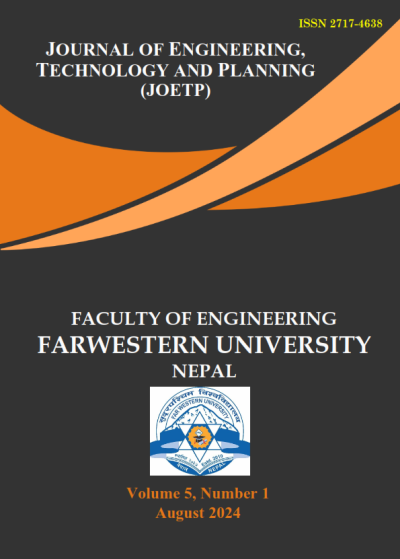Advanced Traffic Scheduling in Smart Cities through IoT and Big Data Analytics
DOI:
https://doi.org/10.3126/joetp.v5i1.69724Keywords:
IoT, SCTS, Real-time Data, Ant Colony Optimization (ACO), Traffic CongestionAbstract
Studies have shown that urbanization has caused severe traffic jamming and that technology needs to be incorporated into the conventional transport industry. “Smart City Traffic Systems” (SCTS) applying the “Internet of Things” (IoT) provide potential answers for efficient traffic management in cities. Cloud computing involves the IoT using microelectronic sensors and wireless communication to gather real time data and optimize traffic. The perception layer deals with data acquisition in an IoT-based SCTS. The Ant Colony Optimization (ACO) method is an example of an advanced algorithm that also takes into account current traffic conditions, delays at junctions and one-way streets. Combining pheromone models with local search improves the efficiency of ACO. Simulation also shows better traffic distribution and movement and fewer congestions and best routes selected. Security is essential to deal with the huge data being created through encryption and communication security protocols.
Downloads
Downloads
Published
How to Cite
Issue
Section
License
Copyright © Faculty of Engineering, Far Western University

